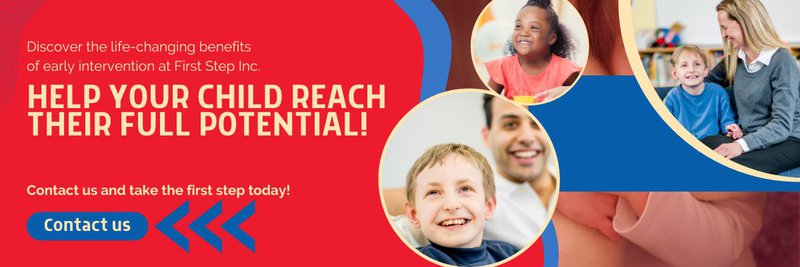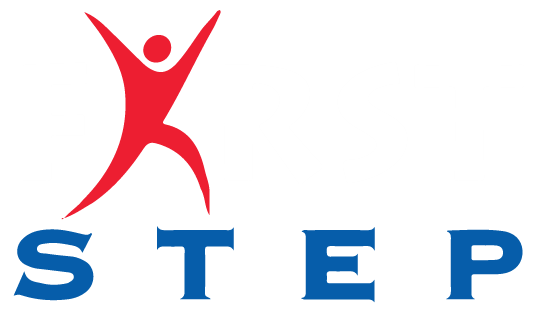Finding the right early intervention services can feel overwhelming, but acting early makes a difference. Whether your child has autism or another developmental delay, the right support improves learning, communication, and independence. Here, we’ll explain what early intervention is, how to find services near you, and what therapies may be available. You’ll also learn about eligibility, costs, and how to get involved—so you can make the best choices for your child.
Key Takeaways:
- Early intervention supports children (birth to age three) with developmental delays or disabilities through speech, physical, and occupational therapy.
- Goals include improving communication, movement, learning, and social skills. Consequently, early support leads to better outcomes.
- Families benefit by learning strategies, receiving emotional support, and connecting to resources.
- Therapies offered:
- Speech therapy (language and communication skills).
- Occupational therapy (daily tasks, fine motor skills, sensory challenges).
- Physical therapy (balance, movement, strength).
- Eligibility: Based on developmental delays or diagnosed disabilities. Therefore, services are often free or low-cost under IDEA Part C.
- During the evaluation process, experts assess a child’s skills using tests and parent input.
- Regarding funding options: Government programs, insurance plans, sliding-scale fees from providers, as well as local resources can help cover costs.
- As for the next steps: Transitioning to preschool or special education ensures continued support for your child's development.

Early Intervention Services for Children
Early intervention services support children with developmental delays or disabilities by providing speech therapy, physical therapy, occupational therapy, and other resources. The goal is to help children build communication, movement, learning, and social skills. The earlier a child receives help, the better the outcome.
Programs are designed for children from birth to age three and involve working closely with families. Therapists and specialists create personalized plans tailored to each child’s needs. Parents also learn strategies to use in daily routines, helping children develop important skills in familiar settings.
Families benefit in many ways. Firstly, parents learn how to support their child’s development at home and gain guidance on working with doctors and educators. Additionally, early intervention provides emotional support, learning tools, and valuable connections to community resources. Consequently, acting early can reduce future challenges in school and daily life.
Moreover, early intervention focuses on key developmental milestones. For example, if a child struggles with speaking, a speech therapist can help. Similarly, if fine motor skills are a concern, an occupational therapist can provide exercises. Furthermore, physical therapy improves balance and movement. Ultimately, these services help children gain confidence and independence.
To learn more about early intervention benefits, visit Empowering Through Early Intervention: First Step Inc. Approach.
Finding Early Intervention Services Near Me
Finding early intervention services may seem challenging, but there are steps to simplify the process. Start by looking for local early intervention providers through your state’s health or education department. Firstly, every state offers programs for children with developmental delays or disabilities, with directories available to guide parents.
Moreover, each state offers different early intervention programs, which may include home visits, therapy sessions, and parent training. To identify high-quality options, you can ask your pediatrician; additionally, reaching out to local parent groups or checking reviews from other families can be very helpful.
Government resources provide additional assistance. The Department of Human Services website for your state will have a list of providers and support programs. For Arkansas, visit Developmental Disabilities Services. These services may be free or covered by insurance, depending on eligibility.
A Parent Training and Information Center in your area can also help. These centers offer guidance, connect families with providers, and assist parents in advocating for their children’s needs.
Types of Therapies Offered in Early Intervention
Early intervention programs also offer various therapies to help young children with developmental challenges. The three main types are speech therapy, occupational therapy, and physical therapy. Each focuses on specific skills children need for growth and learning.
Speech Therapy
Speech therapy supports children who struggle with speaking or understanding language. A speech therapist helps with pronunciation, sentence formation, and comprehension. Some children also learn to use gestures or picture-based communication. Therapy often includes games, songs, or storytelling to make learning enjoyable.
Occupational Therapy
Occupational therapy focuses on daily tasks like eating, dressing, and using crayons. Therapists work on coordination and fine motor skills. Children with sensory challenges may also receive guidance on handling different textures, sounds, or movements.
Physical Therapy in Early Intervention
Physical therapy helps children develop strength, balance, and coordination. Some children have trouble crawling, walking, or running, while others may have weak muscles or tight joints. A physical therapist provides exercises like climbing, jumping, or stretching to improve movement.
Getting the right therapy early makes a significant impact. To explore available treatments, visit Developmental Treatment Services for Young Children.
Eligibility for Early Intervention Programs
Children from birth to age three may qualify for early intervention if they show developmental delays or have a diagnosed disability. Each state sets its own criteria, but delays in speech, motor skills, learning, or social development often meet the qualifications. A medical diagnosis, such as Down syndrome or cerebral palsy, can also make a child eligible.
Every state offers free early intervention services through federal funding. These programs help families who cannot afford private therapy. Government-funded early intervention follows guidelines under the Individuals with Disabilities Education Act (IDEA) Part C, providing evaluations, therapy, and family support at no cost or with sliding-scale fees.
Applying for early intervention starts with a referral from a parent, doctor, or childcare provider. After the referral, a team evaluates the child’s development to determine eligibility. If approved, families work with professionals to create an Individualized Family Service Plan (IFSP), outlining services, goals, and strategies to support the child.
To learn more about Developmental Disability Services, visit Developmental Disability Services.
How the Early Intervention Evaluation Process Works
An early intervention evaluation determines whether a child needs assistance. Specialists assess speech, cognitive abilities, and motor skills while gathering parent input. This process ensures children receive the right support early.
Parents share concerns about their child's development, and a team of experts—including speech therapists and physical therapists—observe the child. Evaluations use tests, play activities, and parent interviews to gather information before determining eligibility for early intervention services.
Common Screening and Diagnostic Tools
Professionals use assessments like the Ages and Stages Questionnaire (ASQ) and the Bayley Scales of Infant Development. The ASQ is a checklist completed by parents to describe their child’s skills, while the Bayley test evaluates thinking, speaking, and motor abilities through interactive tasks. These tools identify delays and guide intervention strategies.
Types of Early Intervention Assessments
Different assessments target different developmental areas. General developmental screenings assess thinking, language, and social abilities. Speech evaluations focus on language skills, while motor assessments examine movement, balance, and coordination. Each type helps specialists design an effective support plan.
An early intervention evaluation determines whether a child needs assistance. Specialists assess speech, cognitive abilities, and motor skills while gathering parent input. This process ensures that children receive the right support early.
Costs and Financial Aid Options
Early intervention supports development, but costs vary based on services, frequency, and location. Some programs are free, while others have fees.
Several options help cover costs, including government-funded programs, nonprofit organizations, and community services. Many states offer free early intervention for children under age three, with additional financial assistance available for families with lower incomes.
Health insurance may pay for early intervention therapies. Some policies fully cover treatment, while others provide partial coverage. Checking with your provider will clarify what is included.
To find funding programs, visit Benefits.gov, which lists financial assistance options for therapy and special education.
Local schools and early childhood centers may also provide free services. Grants or sliding-scale fees can assist families with financial concerns.
How Parents Can Get Involved
Parental involvement helps children succeed in early intervention. Families learn to support development through daily activities, reinforcing therapy techniques at home.
Workshops provide guidance on speech, motor skills, and problem-solving strategies. These events connect parents with experts and other families facing similar challenges.
Parent coaching offers direct training on engaging children in learning activities. This hands-on approach helps families track progress and adjust strategies as needed.
The Next Steps
Children transitioning out of early intervention may move on to preschool, special education, or school-based services. Programs vary, with options like Individualized Education Programs (IEPs) available for continued support.
For more information, visit Empowering You: A Guide for Parents of Children with Disabilities.
Find Early Intervention Services Near You
If you're searching for early intervention services near you, look no further than First Step Arkansas. Our expert team provides developmental support tailored to your child’s unique needs. Don’t wait to give your child the best start—reach out today to find services in your area.


